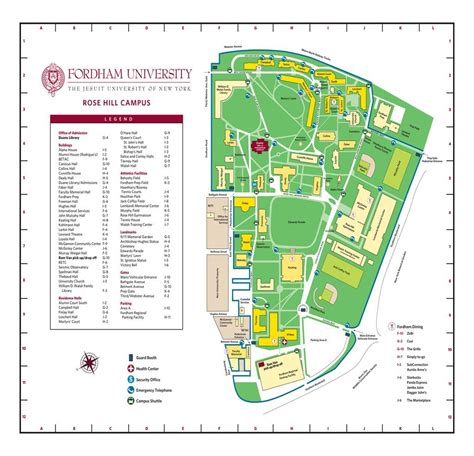Introduction
Fordham University’s vibrant campus in the Bronx, New York City, accommodates over 16,000 students, faculty, and staff. With such a large community, parking becomes a crucial aspect of university life. This comprehensive guide provides detailed information on all aspects of Fordham University parking, from permit types to parking regulations.

Parking Permit Types
Fordham University offers various types of parking permits to meet the diverse needs of its community. Here is a breakdown of the available permits:
- Faculty/Staff Permits: These permits are issued to full-time and part-time faculty and staff members. They provide access to designated parking areas on campus.
- Student Permits: Student permits are available for both commuting and residential students. Commuter students can purchase a permit for off-campus parking, while residential students may obtain a permit for on-campus parking.
- Visitor Permits: Visitor permits are issued to individuals visiting the university for a short period. They provide access to designated visitor parking areas.
Parking Regulations
To ensure the smooth operation of the parking system, Fordham University has established several parking regulations. These regulations include:
- Reserved Parking: Certain parking spaces are reserved for specific groups of vehicles, such as disabled vehicles, faculty and staff vehicles, and service vehicles. Parking in a reserved space without authorization is strictly prohibited.
- Time Restrictions: Parking time restrictions apply to some parking areas on campus. Drivers must adhere to the posted time limits to avoid receiving a citation.
- Overnight Parking: Overnight parking is generally prohibited in most areas on campus. Exceptions may be granted for specific events or circumstances.
- Parking Meters: Parking meters are located in some areas on campus. Drivers must pay the required fee and display the receipt on their vehicle’s dashboard.
Parking Enforcement
Fordham University’s Parking Enforcement team monitors campus parking areas to ensure compliance with parking regulations. Parking violations may result in citations and fines. Common violations include:
- Parking in a prohibited area
- Parking in a reserved space without authorization
- Exceeding the posted time limit
- Failing to pay for metered parking
Parking Fees
Parking fees at Fordham University vary depending on the permit type and location. The following table provides approximate fees for the 2023-2024 academic year:
| Permit Type | Annual Fee |
|---|---|
| Faculty/Staff Permit (Main Campus) | $800 |
| Faculty/Staff Permit (Lincoln Center Campus) | $500 |
| Student Commuter Permit (Off-Campus) | $375 |
| Student Residential Permit (On-Campus) | $1,000 |
| Visitor Permit (Daily) | $15 |
Parking Availability
Parking availability on campus can be limited during peak hours. The university recommends using alternative transportation options, such as public transportation or carpooling, whenever possible. Fordham University also provides a shuttle service that connects the main campus with the Lincoln Center campus.
Parking Challenges and Solutions
Challenges:
- Limited parking spaces: With a large campus community, parking spaces can be scarce, especially during peak hours.
- High parking fees: Parking fees at Fordham University can be a significant expense for students and faculty.
- Traffic congestion: Parking demand can lead to traffic congestion around campus, especially during commute hours.
Solutions:
- Alternative transportation: Encouraging students and faculty to use alternative transportation options, such as public transportation or carpooling, can reduce parking demand.
- Flexible parking arrangements: Fordham University offers flexible parking arrangements, such as part-time permits and hourly parking, to accommodate the varying needs of the campus community.
- Parking technology: Implementing parking technology, such as mobile payment systems and real-time parking availability updates, can enhance the parking experience for users.
Conclusion
Fordham University’s parking system is designed to meet the diverse needs of its campus community. By understanding the available parking permit types, parking regulations, and parking fees, students, faculty, and staff can navigate the parking system efficiently. The university continues to explore innovative solutions to address parking challenges and enhance the overall parking experience for its community members.
